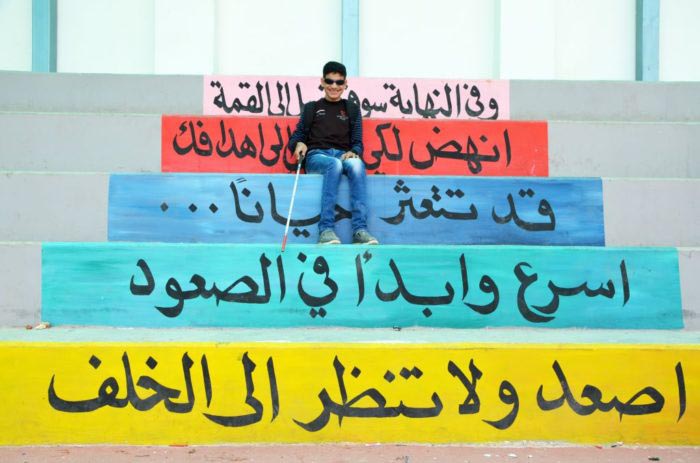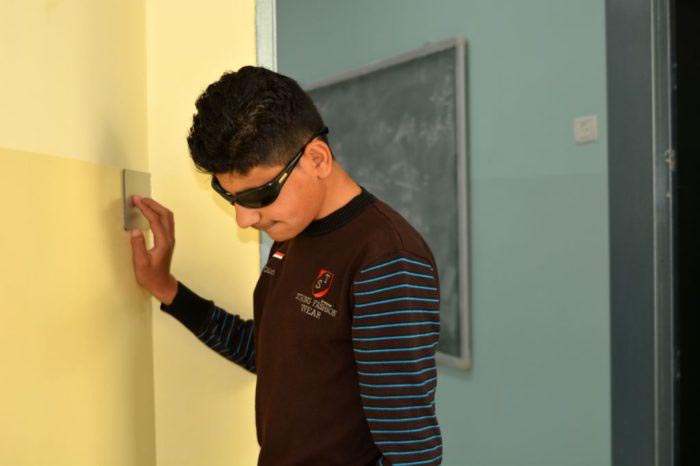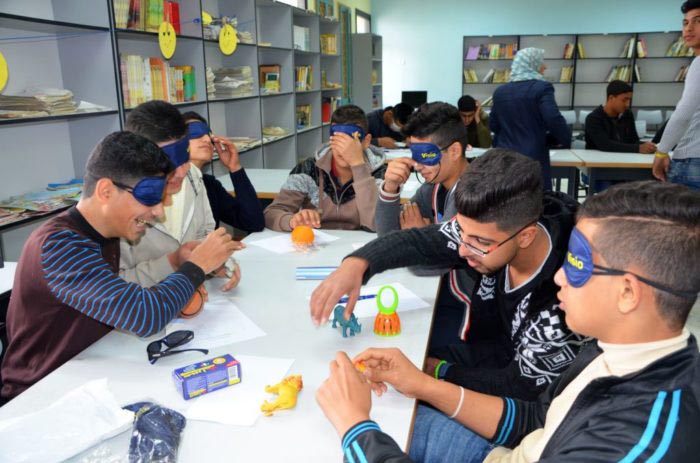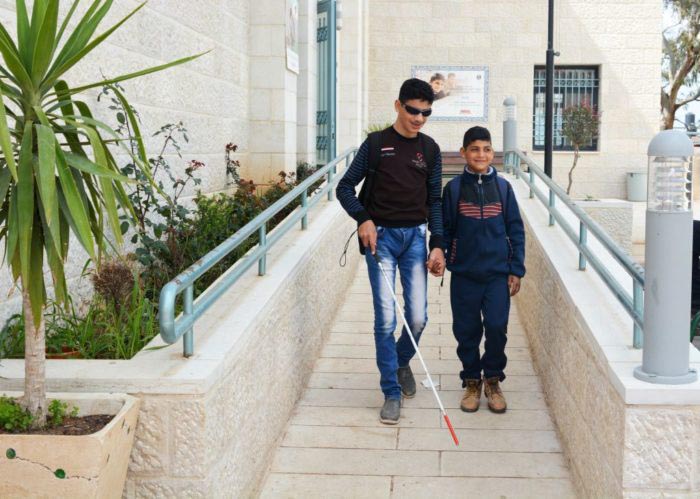COMMUNITY
Accessibility for All at this West Bank School in Palestine
Dec, 2018
The transition from a school for the visually impaired to a mainstream school will always be difficult. But providing equal access to all individuals is a key priority of Anera’s and can make a student’s transition a lot easier.
Meet Omar, A Visually Impaired Student at Jalqamous Boys’ School in the West Bank
This year, Omar became the first visually impaired student to attend the newly constructed Jalqamous Secondary Boys’ School in the West Bank. Omar told us his story during a recent awareness workshop that was held at his school. Anera’s, USAID funded, Palestinian Community Infrastructure Development (PCID) team organized the workshop to introduce students and staff to different types of visual impairments and discuss ways to better integrate students with disabilities into the school environment.
Being the only blind student in school can be very difficult, even under the best of circumstances. Omar’s parents first sent him to Al-Noor Basic School for the Blind to prepare him for a mainstream school and eventually university. To be able to integrate more easily into these schools, a student needs to develop Braille reading and writing abilities, mobility, communication skills, and most importantly, confidence.
When Omar was ready, he was transferred to Jalqamous Secondary Boys’ School to complete his 11th and 12th grade years. “Being the only blind student in a regular school is a challenge, but my friends and teachers made the move easy.” He adds, “A huge challenge is changing the mindset of those who don’t believe that visually impaired people have abilities.”
Accessibility for All
At first, Omar thought he would suffer in a mainstream school since he was used to interacting mainly with other fellow blind students and adults. “I was too shy to ask for help. When people did help me, I sensed it was because they felt bad for me.” He continues, “There is nothing wrong with being blind – it’s nothing to be ashamed of. I’m blind, so what? I can still do a lot of things despite what many people may think.” Another main concern for Omar was attending a school he was not familiar with. “I was surprised to learn that my new school has Braille signage and handicap rails to help me get around.”
Sitting among his friends, he says with a smile, “I am really good in Arabic grammar, though a lot of my classmates have a difficult time with it. They come to me for help!” He adds, “My teachers and friends are great, giving me the knowledge, the methods and the confidence I need for life in the wider world.”
“I am happy because, now, my friends and teachers have gained a better understanding and perspective of what it’s like to be blind.” Omar does not let anything stand in his way and his determination has helped him. “I study very hard to get good grades so I can enter university and eventually study journalism. He adds, “My dream is to work in radio.”
Anera’s PCID Program, which is funded by USAID, recently constructed and furnished a new, two-story building for the high school age boys of Jalqamous village in the northern West Bank. The school is accessible to students with disabilities, with wheelchair accessible bathroom facilities, ramps, and Braille signage. In addition, the Palestinian Ministry of Education (MoE) provides visually impaired students with Braille textbooks to ensure that no student is left behind. Following its construction, the PCID Team organized an awareness workshop in coordination with the MoE to introduce students to the challenges facing peers with disabilities, and visual impairments in particular. Furthermore, the workshop introduced teachers to techniques on how to better integrate and educate students with visual impairments. It was also Omar’s chance to show his classmates what it’s like to be in his shoes! They discovered how hard it was to identify objects, walk around and read while wearing glasses that simulate a variety of visual impairments.






